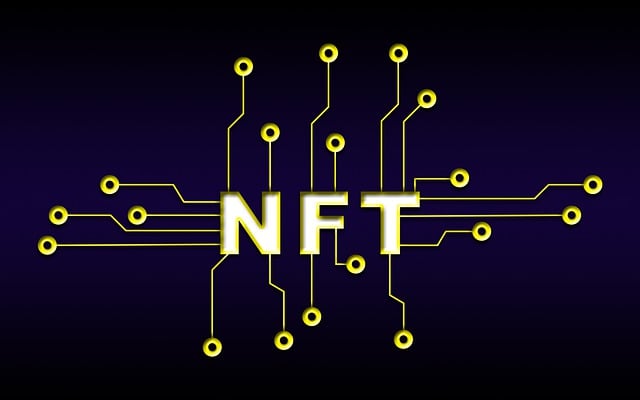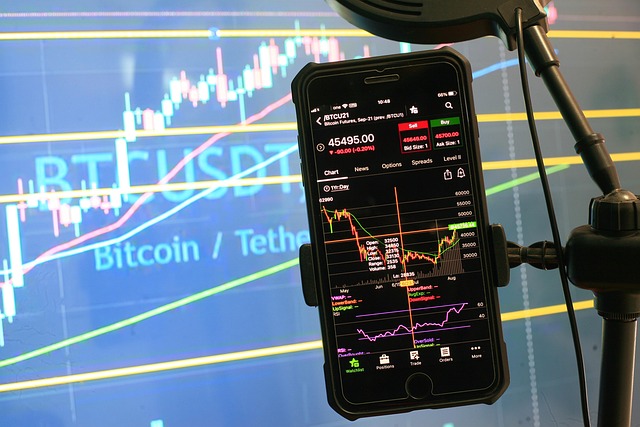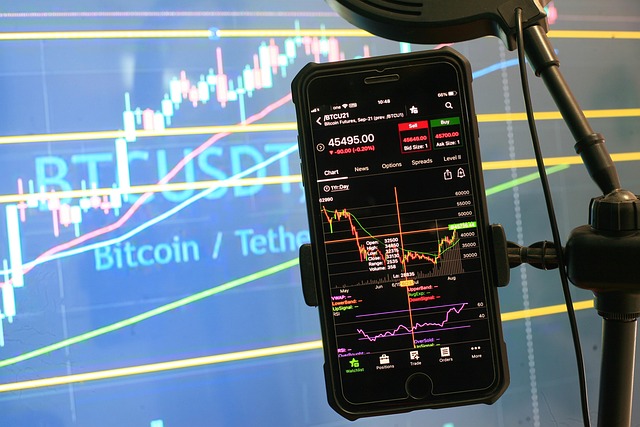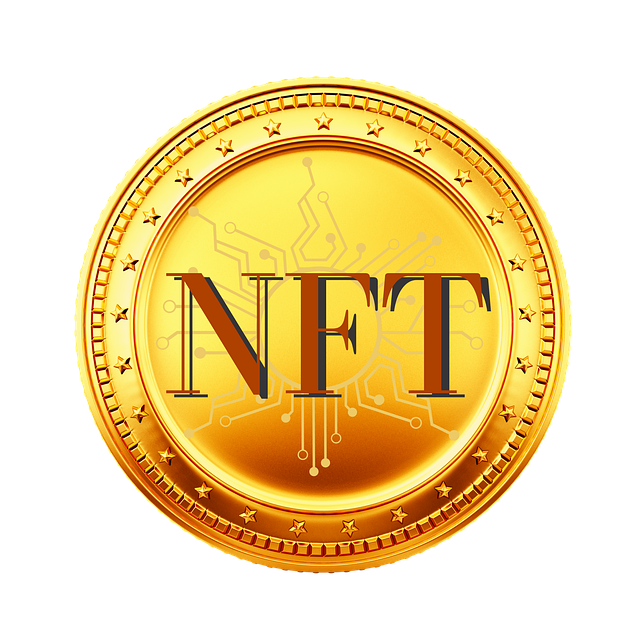Is Crypto Trading Halal Shia 2025: Practical Guidance and Rulings
Author: Jameson Richman Expert
Published On: 2025-11-03
Prepared by Jameson Richman and our team of experts with over a decade of experience in cryptocurrency and digital asset analysis. Learn more about us.
Is crypto trading halal shia? This comprehensive 2025 guide examines the question from Shia Islamic jurisprudence, compares relevant Sunni positions, explains core Islamic finance principles (riba, gharar, and maysir), and gives practical, actionable guidance for Shia traders who want to align crypto activity with their faith. The article summarizes scholarly approaches, typical fatwa reasoning, examples (spot vs. derivatives, staking, yield farming), and compliance checklists — plus curated resources and market links for further reading and trading if you decide it is permissible.

Why this question matters for Shia Muslims in 2025
Cryptocurrencies have become mainstream investment and payment tools. For many Shia Muslims, clarity is needed: can trading, investing, or earning from crypto be considered halal (permissible) under Shia fiqh? The answer is not simply “yes” or “no.” It depends on how the crypto is used, the specific contract form, and the jurisprudential reasoning of one’s marja' (religious reference).
Core Islamic finance principles relevant to crypto
Scholarly rulings on crypto draw from several long-established principles of Islamic law (sharia) related to transactions. Understanding these helps you evaluate any crypto activity:
- Riba (usury/interest) — Any guaranteed, predetermined interest on loans or deposits is prohibited. Earnings that effectively function as interest may be considered riba.
- Gharar (excessive uncertainty) — Transactions with excessive ambiguity about subject, price, or delivery are problematic. Contracts must be clear to avoid unjust enrichment.
- Maysir (gambling/speculation) — Transactions that amount to pure chance-based gain or addictive gambling are prohibited.
- Asset-backed/real economic activity — Trade and sale of tangible or recognized assets with mutual consent and delivery are generally permissible.
For accessible overviews of these concepts, see the Islamic finance entry on Wikipedia and the gharar article. These pages explain the legal concepts used by scholars when assessing new financial instruments: Islamic finance — Wikipedia, Gharar — Wikipedia, and Maisir — Wikipedia.
How Shia fiqh treats new financial instruments
Within Shia jurisprudence (Jaʿfari), new financial products are evaluated by analogy (qiyas is limited in Shia view) and deduction from primary texts, plus careful consideration by maraji‘ (plural of marja' — highest-ranking jurists). Many Shia scholars demand concrete evidence of permissibility and emphasize protecting the believer from doubtful matters (al-umur al-shubha).
Therefore, Shia answers to “is crypto trading halal shia” are often conditional and case-specific. Some maraji‘ may permit certain types of crypto transactions while prohibiting others — especially those involving leverage, interest, or clear gambling-like behavior.

Common Shia concerns about cryptocurrency
When Shia scholars and jurists evaluate cryptocurrencies they commonly consider:
- Is the crypto an identifiable, real asset with ownership transferability?
- Does the transaction involve riba (for example, interest-bearing lending of crypto)?
- Is there excessive gharar that renders the contract voidable?
- Does trading amount to maysir (speculation/gambling) such as roulette-like betting on short-term price swings?
- Does use of platforms or contracts (margin, futures, perpetuals) embed forbidden elements like interest or uncertainty?
Practical rulings many Shia scholars tend to give (patterns, not universal)
Based on recent scholarly discussions and parallels to Sunni fatwas, the following patterns are commonly observed among Shia jurists — but remember: local rulings vary and you should consult your own marja'.
- Spot trading of cryptocurrencies (buy-and-hold) is often considered more likely permissible if the token represents an identifiable asset, transfers ownership, and there is no deception. Buying BTC/ETH with immediate transfer of ownership and custody can fit the model of a regular sale.
- Margin and leveraged trading are often considered impermissible because they commonly involve interest, borrowing, or excessive gharar, and can resemble gambling.
- Derivatives, futures, and perpetual contracts are frequently treated as problematic due to high uncertainty, lack of delivery intent, and potential for speculation.
- Staking, lending, and yield-generation require careful analysis: some forms that distribute rewards as profit for risk-bearing or providing services may be permissible, while guaranteed fixed-rate returns resembling interest are likely riba.
- Short-term day trading may be permitted by some jurists if undertaken as legitimate trade, with clear contracts and intent to buy low and sell high; other jurists caution against speculative patterns that resemble gambling.
For practical discussion about daily trading and Islamic guidance, see this detailed analysis of day trading and halal considerations: Is daily trading halal? — Islamic guidance for modern traders.
Spot trading vs derivatives: concrete examples
Below are simplified examples showing how a transaction might be judged differently.
- Spot trade (example): You buy 1 BTC for $40,000 on an exchange and the exchange transfers ownership to your wallet immediately. You own the asset — many jurists view this as a regular sale and often permissible if there is no deception and you intend legitimate use or holding.
- Futures/perpetual (example): You open a perpetual contract with 20x leverage, pay funding fees, and profit from price differences without actual delivery of BTC. This may be considered speculative, include riba (via funding mechanisms), and be impermissible under many jurists’ reasoning.
- Margin lending (example): You lend USDT to earn a guaranteed APR: this looks like interest-bearing lending and many scholars would treat it as riba.

Staking, yield farming, and DeFi — nuanced Shia perspectives
Decentralized finance (DeFi) complicates rulings. Rewards from staking or liquidity provision may be:
- Profit for risk-taking and service (potentially permissible) if rewards are from network fees or genuine profit-sharing with risk borne by participants.
- Guaranteed returns or interest-like mechanisms (likely impermissible) if yields are fixed or mimic interest payments.
- Instruments with opaque algorithms or predatory structures (impermissible) due to gharar and potential for deception.
Shia scholars will analyze the contract or smart contract logic to see whether rewards are contingent on shared risk and real economic activity. If the smart contract functionally guarantees a fixed return, it may be treated as riba.
Comparing Sunni and Shia rulings — similarities and differences
Both Sunni and Shia scholarship use the same basic sharia concepts (riba, gharar, maysir) but differ in methodology and who is authoritative. In practice:
- Many Sunni fatwas that permit spot trading with conditions mirror positions some Shia scholars take.
- Both traditions are generally critical of derivatives, leveraged products, and interest-like yields.
- Shia believers are expected to follow their marja'; hence specific rulings may vary more by individual marja' than by sectarian consensus.
Because of this variety, the prudent approach for a Shia Muslim is to consult their marja' or an authorized Shia religious scholar for specific activities.
How scholars reason when they issue a fatwa on crypto
When a marja' or council evaluates crypto, they typically:
- Assess whether the token is a real asset or merely a speculative claim.
- Examine the transaction mechanics for riba and gharar.
- Consider whether the activity is primarily speculative or a legitimate trade.
- Look at whether there is deception, fraud, or harm to the community.
Some jurists issue conditional permissibility: “permissible if X, Y, and Z are met” — for example, no leverage, custody and ownership are real, and funds are not involved in unlawful activity.

Actionable checklist for Shia traders: Is crypto trading halal shia?
Use this checklist to evaluate whether a specific crypto action aligns with Shia fiqh considerations. This is a practical tool — not a substitute for religious counsel from your marja'.
- Determine the type of activity: spot purchase, day trading, margin/leveraged, futures, staking, lending, liquidity provision, NFT minting/sales, or other.
- Ownership and delivery: Is ownership transferred immediately and with clear title? If yes, it leans toward permissibility.
- Interest exposure: Are you receiving or paying guaranteed interest? If yes, problematic.
- Nature of return: Is the return profit-sharing for risk/service, or a guaranteed fixed yield? Profit-sharing is more permissible; guaranteed fixed yield is suspect.
- Degree of uncertainty: Are contractual terms, price, or delivery extremely unclear? High gharar suggests prohibition.
- Speculation vs trade: Is the strategy long-term, supporting real economic activity, or pure short-term gambling? The former is more acceptable.
- Platform mechanics: Does the exchange charge interest, use fraudulent practices, or enforce predatory terms? Use compliant, transparent platforms.
- Seek fatwa if uncertain: Consult your marja' and keep proof of their guidance for peace of mind.
Practical trading rules many Shia traders adopt
If you decide to trade in a way judged permissible, many Shia traders adopt conservative, faith-aligned rules:
- Prefer spot purchases and custody in wallets you control rather than lending or margining on exchanges.
- Avoid derivatives, perpetuals, and leveraged products unless your marja' explicitly permits them under clear terms.
- Refuse guaranteed fixed-interest crypto lending; prefer participatory models with shared risk.
- Keep detailed records, avoid money laundering risks, and ensure investments don’t fund unlawful or unethical projects.
- When in doubt, lower exposure and seek guidance from a marja'.
Examples and case studies
Example 1 — Spot purchase (more likely halal under many rulings):
You buy 2 ETH on a regulated exchange, transfer to your personal wallet, and hold for long-term use and/or sale. No leverage, no lending. This is similar to buying any commodity and is commonly considered permissible.
Example 2 — Margin/perpetual trading (often impermissible):
You open a 10x perpetual contract, use borrowed funds, and pay funding fees that are equivalent to interest. High uncertainty and possible riba elements make many jurists rule it impermissible.
Example 3 — Staking rewards (mixed):
You stake tokens in a Proof-of-Stake network and receive variable rewards from network fees. If rewards are functionally profit-sharing for participating in network security and risk is borne by you, some jurists may find this permissible. If the platform promises a fixed APR, many jurists would consider it riba-like.

Where to find more in-depth analysis and market perspective
For traders looking to combine jurisprudential clarity with market insights, consider authoritative market analysis and educational resources. For example, market-focused articles and long-term scenario analyses can help you make better-informed, less speculative decisions — a practice that aligns with halal trading principles. See these analyses for broader market context:
- ISO 20022 and XRP 2025 price outlook (technical and macro analysis): ISO 20022 live: Comprehensive XRP price prediction for 2025.
- Day trading rules and Islamic perspective: Is daily trading halal? — Islamic guidance for modern traders.
- Asset-by-asset analysis (example: Cardano): Is Cardano crypto a good investment today?.
- Crypto news sources for staying informed: Best crypto news websites for traders and investors.
- Long-range forecasts and scenarios to avoid short-term gambling: Bitcoin price in 2030 — drivers and scenarios.
Regulation, safety, and due diligence
Even when an activity is judged halal, regulatory compliance and safety are important. Follow these best practices:
- Use reputable exchanges with transparent practices and good security. Check regulatory status in your jurisdiction.
- Keep KYC/AML compliance in mind — ensuring you don’t facilitate illicit finance supports ethical obligations under sharia.
- Understand tax obligations in your country and maintain clear records.
If you want to register on major exchanges for spot trading (and you’ve confirmed permissibility with your marja'), you can consider trusted platforms. Below are referral links to well-known exchanges (use only for spot and non-leveraged trades if you or your marja' advise so):
Scholarly and institutional resources to consult
To build a well-informed position, read both fiqh analyses and reputable institutional reports on crypto:
- Islamic finance primers and legal concepts: Islamic finance — Wikipedia.
- Gharar, riba, and maysir descriptions: Gharar — Wikipedia, Maisir — Wikipedia, and Riba — Wikipedia.
- Regulatory reports and global standards: Financial Action Task Force (FATF) and central bank publications often provide practical regulatory context for crypto business models (search FATF reports at fatf-gafi.org).

How to approach differences of opinion
Scholars disagree. As with other complex modern issues, Shia Muslims should:
- Follow their marja' or consult a recognized Shia scholar for a personalized ruling.
- Favor conservative approaches when uncertain (avoid doubtful matters).
- Document the reasoning you received from your religious advisor, especially for major financial decisions.
Frequently asked questions (FAQ)
Q: Is buying Bitcoin for long-term holding halal for Shia Muslims?
A: Many Shia scholars consider spot buying and holding more likely permissible if you obtain actual ownership, avoid interest-bearing lending and speculative leverage, and the purchase is not used for unlawful or deceptive purposes. Always verify with your marja'.
Q: Are crypto futures and perpetual contracts halal for Shia?
A: These are often considered problematic due to high uncertainty, lack of delivery, and embedded interest-like mechanisms. Many jurists — both Shia and Sunni — advise avoiding leveraged derivatives.
Q: Is staking halal for Shia Muslims?
A: It depends on the mechanism. If rewards are profit-sharing for network participation with risk borne by participants, some jurists may permit it. If returns are guaranteed or effectively fixed, it may be treated as riba. Assess the smart contract terms and consult a scholar.
Q: What if my marja' says crypto is haram?
A: You should follow your marja'’s guidance. If they rule crypto haram, refrain from participating in the activities they forbid. Many Shia Muslims then look for alternative halal investments like equities, sukuk, or real assets.
Summary — a conservative, practical answer
So, is crypto trading halal shia? The concise, practical summary:
- There is no unanimous Shia ruling that covers all crypto activity; permissibility is conditional.
- Spot trading with immediate ownership transfer and no interest or deceptive elements is more likely to be considered permissible by many Shia jurists.
- Margin, leverage, futures, guaranteed-yield lending, and highly speculative gambling-like trading are commonly treated as impermissible.
- Staking and DeFi require contract-level analysis; profit-sharing models with shared risk may be acceptable while fixed-interest-style returns are problematic.
- Always consult your marja' for a definitive ruling and err on the side of caution where doubt exists.

Next steps and resources
If you want to continue exploring both the jurisprudential side and market realities:
- Consult your marja' or a recognized Shia authority for a personal fatwa.
- Study contract mechanics and avoid products with embedded interest or opaque algorithms.
- Follow reputable market analysis to reduce speculative behavior; for macro and token-specific research see the linked analyses earlier in this article — including market forecasts and how technology updates like ISO 20022 may affect assets like XRP (ISO 20022 & XRP 2025 analysis).
If, after consultation, you determine certain spot crypto activities are halal for you and you choose to trade, use reputable exchanges and adhere to conservative, transparent strategies. For platform access consider the exchanges above (Binance, MEXC, Bitget, Bybit) and always choose spot markets and avoid leveraged products unless explicitly permitted by your marja'.
Final note: religious rulings evolve as jurists study new contracts and technologies. Staying informed, consulting reputable scholars, and favoring low-uncertainty, ethically sound investments offers the best path for Shia Muslims seeking to align crypto activity with their faith.